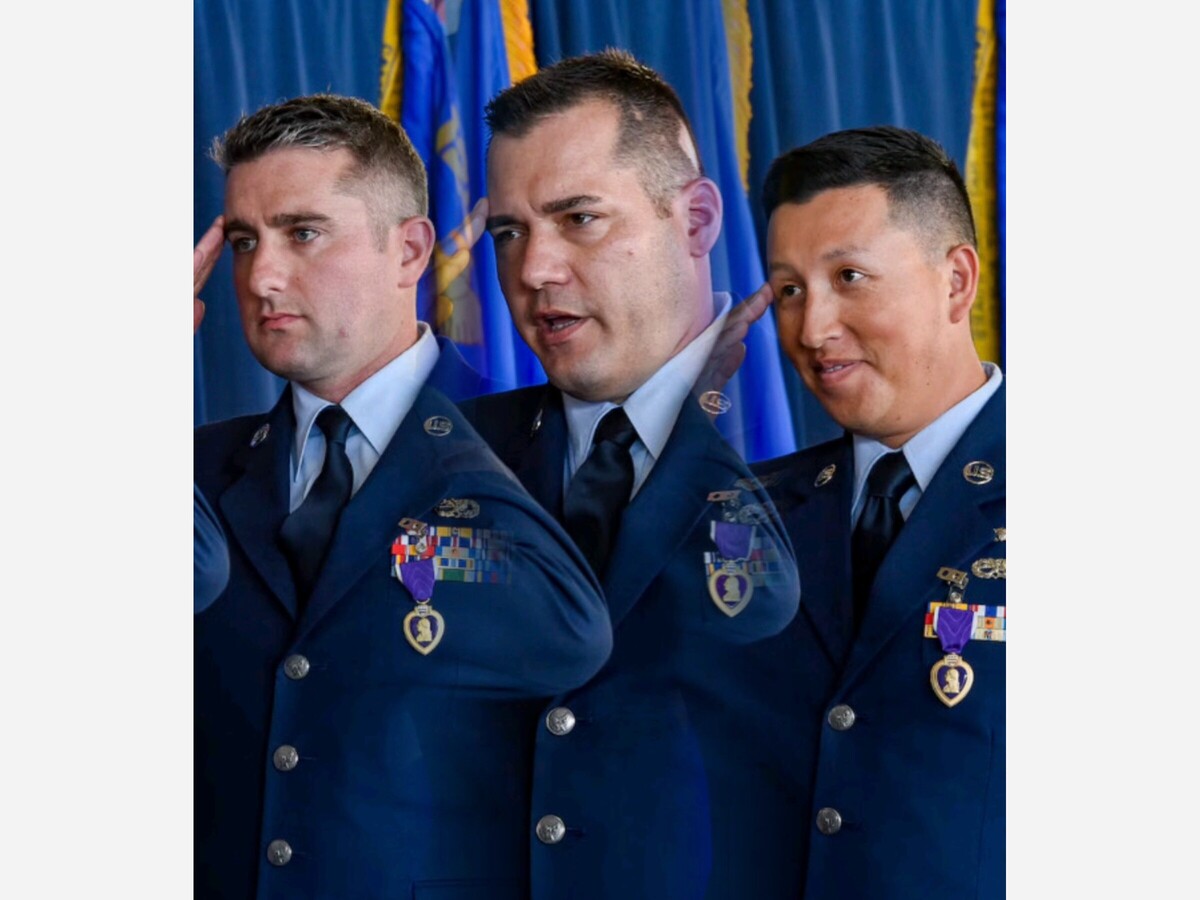Image


U.S. Air Force Staff Sgt. Michael Byrne, Senior Airman Herland Antezana and Staff Sgt. Dustin Dinkelacker, assigned to the 129th Rescue Wing, were three of the 41 Guardsmen injured during the Jan. 28 unmanned aerial system attack that also killed three Army Reserve Soldiers, per a release from the US Air Force and Air National Guard.
The three Airmen were injured during the January, 2024 Tower 22 attack in Jordan and were presented the Purple Heart at the 129th Rescue Wing at Moffett Air National Guard Base in Mountain View Oct. 5, 2024.
Each of the Airmen lost consciousness from the blast. As they came to, they began searching for each other. That’s when their training kicked in.
Banging on doors, they warned others of a plausible following attack and ran to shelter in a safety bunker. In the bunker, they began helping those in need and realized the severity of the damage.
“We ran into the center of where it happened,” said Byrne. “At that point, we realized this isn’t a training thing. This is real life.”
The Guardsmen practiced emergency scenario training just days before, preparing the Airmen and Soldiers for an attack and mass casualties with minimal medical supplies.
“When you go through a situation like that, you revert back to your training,” said Byrne.
The Guardsmen worked together to get people to medical attention and to begin casualty evacuation.
“There were people that took charge that wouldn’t normally be in a supervisor role and gave out direct orders on what needed to get done and it happened,” said Byrne. “The people that were there did such an amazing job.”
They went door to door, put out fires, and searched through rubble to find other injured service members.
With limited staff on scene, the Guardsmen waited to seek attention for their injuries until pararescuemen and additional medical personnel were available and the commotion died down.
“That’s when we realized what impact the UAV made on us, when the adrenaline started coming down,” said Antezana. “We weren’t feeling well at that point.”
The Airmen were evaluated and treated for their injuries. They continued their deployment until their homecoming in May.
“I can’t tell you how proud I am,” said Maj. Gen. Steven Butow, commander of the California Air National Guard, who pinned the heart-shaped medal on the recipients during a ceremony at the wing. “I hope you all wear this with great pride and honor.”
The Purple Heart is given to service members wounded, injured or killed in any action against an enemy of the United States.
Byrne said he’s received a lot of support since the incident, but can’t help but think of the fallen Soldiers and their families.
He said anyone interested in joining the military should consider the incident as a time to join and do good.
“For the longest time, I considered myself just a mechanic,” said Byrne. “Don’t downplay your job once you get in. Everyone is important.”
During the Jan. 28 attack, three Army reserve soldiers based out of Fort Moore, Georgia, were killed -- Sgt. William Rivers, Spc. Kennedy Sanders and Spc. Breonna Moffett. All three were posthumously promoted, Military.com reported.
Many of the others injured in the attack -- predominantly Guardsmen from units in Arizona, California, Kentucky and New York -- were evaluated and then cleared. Eight of those injured had to be evacuated from Jordan to the Baghdad Diplomatic Support Center for more intense medical treatment for conditions such as traumatic brain injury.
Military.com reported that the attack raised concerns among lawmakers about how the militia was able to evade U.S. detection and anti-drone defenses.